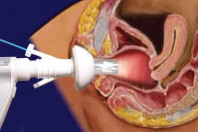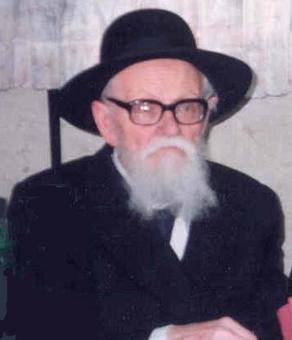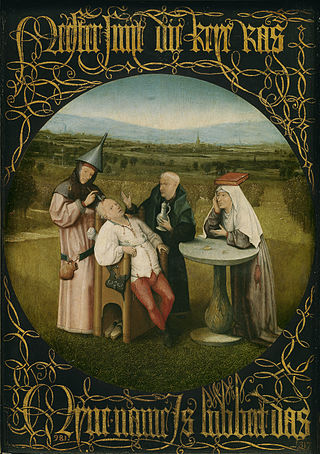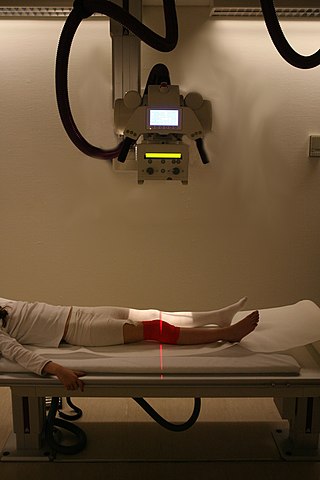The examples and perspective in this article may not represent a worldwide view of the subject.(May 2011) |
A second opinion is an opinion on a matter disputed by two or more parties.
The examples and perspective in this article may not represent a worldwide view of the subject.(May 2011) |
A second opinion is an opinion on a matter disputed by two or more parties.
In legal cases, a second opinion which contradicts the opinion of a jointly retained expert may be disregarded as not being impartial. [1]
In cases such as car repairs, a second opinion should be obtained in writing, and the original garage given an opportunity to rectify matters. [2] In the case of clients' disputes with domestic building contractors, the builder may seek a second opinion to confirm their view. [3]
A second opinion can be a visit to a physician other than the one a patient has previously been seeing in order to get more information or to hear a differing point of view. [4] [5] Some reasons for which a patient may seek out a second opinion include:
Different payment procedures apply to different second opinions. For example, some health plans pay for second opinions for members; many employers offer free second opinion benefits through companies like Grand Rounds or similar companies; and some states have public programs for cancer second opinions. [9]
Second opinions may also be obtained by employers. [10]
Professional mediators may be asked for second opinions regarding whether to proceed to trial or seek a settlement instead. [11]

Medicine is the science and practice of caring for a patient, managing the diagnosis, prognosis, prevention, treatment, palliation of their injury or disease, and promoting their health. Medicine encompasses a variety of health care practices evolved to maintain and restore health by the prevention and treatment of illness. Contemporary medicine applies biomedical sciences, biomedical research, genetics, and medical technology to diagnose, treat, and prevent injury and disease, typically through pharmaceuticals or surgery, but also through therapies as diverse as psychotherapy, external splints and traction, medical devices, biologics, and ionizing radiation, amongst others.

Informed consent is a principle in medical ethics and medical law and media studies, that a patient must have sufficient information and understanding before making decisions about their medical care. Pertinent information may include risks and benefits of treatments, alternative treatments, the patient's role in treatment, and their right to refuse treatment. In most systems, healthcare providers have a legal and ethical responsibility to ensure that a patient's consent is informed. This principle applies more broadly than healthcare intervention, for example to conduct research and to disclosing a person's medical information.

Obstetrics and Gynaecology is the medical specialty that encompasses the two subspecialties of obstetrics and gynecology.

Gynaecology or gynecology is the area of medicine that involves the treatment of women's diseases, especially those of the reproductive organs. It is often paired with the field of obstetrics, forming the combined area of obstetrics and gynecology (OB-GYN).
In the United States, a health maintenance organization (HMO) is a medical insurance group that provides health services for a fixed annual fee. It is an organization that provides or arranges managed care for health insurance, self-funded health care benefit plans, individuals, and other entities, acting as a liaison with health care providers on a prepaid basis. The Health Maintenance Organization Act of 1973 required employers with 25 or more employees to offer federally certified HMO options if the employer offers traditional healthcare options. Unlike traditional indemnity insurance, an HMO covers care rendered by those doctors and other professionals who have agreed by contract to treat patients in accordance with the HMO's guidelines and restrictions in exchange for a steady stream of customers. HMOs cover emergency care regardless of the health care provider's contracted status.

Assisted suicide is suicide undertaken with the aid of another person. The term usually refers to physician-assisted suicide (PAS), which is suicide that is assisted by a physician or another healthcare provider. Once it is determined that the person's situation qualifies under the physician-assisted suicide laws for that location, the physician's assistance is usually limited to writing a prescription for a lethal dose of drugs.
Medical ethics is an applied branch of ethics which analyzes the practice of clinical medicine and related scientific research. Medical ethics is based on a set of values that professionals can refer to in the case of any confusion or conflict. These values include the respect for autonomy, non-maleficence, beneficence, and justice. Such tenets may allow doctors, care providers, and families to create a treatment plan and work towards the same common goal. It is important to note that these four values are not ranked in order of importance or relevance and that they all encompass values pertaining to medical ethics. However, a conflict may arise leading to the need for hierarchy in an ethical system, such that some moral elements overrule others with the purpose of applying the best moral judgement to a difficult medical situation. Medical ethics is particularly relevant in decisions regarding involuntary treatment and involuntary commitment.

In a physical examination, medical examination, or clinical examination, a medical practitioner examines a patient for any possible medical signs or symptoms of a medical condition. It generally consists of a series of questions about the patient's medical history followed by an examination based on the reported symptoms. Together, the medical history and the physical examination help to determine a diagnosis and devise the treatment plan. These data then become part of the medical record.
Medical tourism refers to people traveling abroad to obtain medical treatment. In the past, this usually referred to those who traveled from less-developed countries to major medical centers in highly developed countries for treatment unavailable at home. However, in recent years it may equally refer to those from developed countries who travel to developing countries for lower-priced medical treatments. The motivation may be also for medical services unavailable or non-licensed in the home country: There are differences between the medical agencies world-wide which decide whether a drug is approved in their country or not. Even within Europe, although therapy protocols might be approved by the European Medicines Agency (EMA), several countries have their own review organizations in order to evaluate whether the same therapy protocol would be "cost-effective", so that patients face differences in the therapy protocols, particularly in the access of these drugs, which might be partially explained by the financial strength of the particular Health System.
The term managed care or managed healthcare is used in the United States to describe a group of activities intended to reduce the cost of providing health care and providing American health insurance while improving the quality of that care. It has become the predominant system of delivering and receiving American health care since its implementation in the early 1980s, and has been largely unaffected by the Affordable Care Act of 2010.
...intended to reduce unnecessary health care costs through a variety of mechanisms, including: economic incentives for physicians and patients to select less costly forms of care; programs for reviewing the medical necessity of specific services; increased beneficiary cost sharing; controls on inpatient admissions and lengths of stay; the establishment of cost-sharing incentives for outpatient surgery; selective contracting with health care providers; and the intensive management of high-cost health care cases. The programs may be provided in a variety of settings, such as Health Maintenance Organizations and Preferred Provider Organizations.

Eliezer Yehuda Waldenberg was a rabbi, posek, and dayan in Jerusalem. He is known as a leading authority on medicine and Jewish law and referred to as the Tzitz Eliezer after his 21-volume halachic treatise covering a wide breadth of halacha, including Jewish medical ethics, and daily ritual issues from Shabbat to kashrut.

The health care system in Japan provides different types of services, including screening examinations, prenatal care and infectious disease control, with the patient accepting responsibility for 30% of these costs while the government pays the remaining 70%. Payment for personal medical services is offered by a universal health care insurance system that provides relative equality of access, with fees set by a government committee. All residents of Japan are required by the law to have health insurance coverage. People without insurance from employers can participate in a national health insurance program, administered by local governments. Patients are free to select physicians or facilities of their choice and cannot be denied coverage. Hospitals, by law, must be run as non-profit and be managed by physicians.
Case management is a managed care technique within the health care coverage system of the United States. It involves an integrated system that manages the delivery of comprehensive healthcare services for enrolled patients. Case managers are employed in almost every aspect of health care and these employ different approaches in the control of clinical actions.
The doctor–patient relationship is a central part of health care and the practice of medicine. A doctor–patient relationship is formed when a doctor attends to a patient's medical needs and is usually through consent. This relationship is built on trust, respect, communication, and a common understanding of both the doctor and patients' sides. The trust aspect of this relationship goes is mutual: the doctor trusts the patient to reveal any information that may be relevant to the case, and in turn, the patient trusts the doctor to respect their privacy and not disclose this information to outside parties.
Aetna Health Inc. v. Davila, 542 U.S. 200 (2004), was a United States Supreme Court case in which the Court limited the scope of the Texas Healthcare Liability Act (THCLA). The effective result of this decision was that the THCLA, which held Case Management and Utilization Review decisions by Managed Care entities like CIGNA and Aetna to a legal duty of care according to the laws of The State of Texas could not be enforced in the case of Health Benefit plans provided through private employers, because the Texas statute allowed compensatory or punitive damages to redress losses or deter future transgressions, which were not available under ERISA § 1132. The ruling still allows the State of Texas to enforce the THCLA in the case of Government-sponsored (Medicare, Medicaid, Federal, State, Municipal Employee, etc., Church-sponsored, or Individual Health Plan Policies, which are saved from preemption by ERISA. The history that allows these Private and Self-Pay Insurance to be saved dates to the "Interstate Commerce" power that was given the federal Government by the Supreme Court. ERISA, enacted in 1974, relied on the "Interstate Commerce" rule to allow federal jurisdiction over private employers, based on the need of private employers to follow a single set of paperwork and rules for pensions and other employee benefit plans where employers had employees in multiple states. Except for private employer plans, insurance can be regulated by the individual states, and Managed Care entities making medical decisions can be held accountable for those decisions if negligence is involved, as allowed by the Texas Healthcare Liability Act.

Surgery is the branch of medicine that deals with the physical manipulation of a bodily structure to diagnose, prevent, or cure an ailment. Ambroise Paré, a 16th-century French surgeon, stated that to perform surgery is, "To eliminate that which is superfluous, restore that which has been dislocated, separate that which has been united, join that which has been divided and repair the defects of nature."
Parkview Health System, founded in 1878 as Fort Wayne City Hospital is a network of 10 community hospitals and more than 100 clinic locations in northeast Indiana and northwest Ohio. The not-for-profit Parkview Health System is the region's largest employer with more than 14,000. Parkview Physicians Group is also part of the Parkview Health, and includes more than 900 providers in more than 45 specialties.

Medical diagnosis is the process of determining which disease or condition explains a person's symptoms and signs. It is most often referred to as diagnosis with the medical context being implicit. The information required for diagnosis is typically collected from a history and physical examination of the person seeking medical care. Often, one or more diagnostic procedures, such as medical tests, are also done during the process. Sometimes posthumous diagnosis is considered a kind of medical diagnosis.
The Virginia Workers' Compensation Commission (VWC) is an agency of the U.S. state of Virginia that oversees the resolution of workers' compensation claims brought in that state, in accordance with the Virginia Workers' Compensation Act. The Commission has exclusive jurisdiction to adjudicate such claims. Its decisions may be appealed to the Virginia Court of Appeals. The Commission is led by a Senior Leadership team consisting of three Commissioners, an Executive Director and a Chief Deputy Commissioner. The Commissioners are appointed by the Virginia General Assembly and serve staggered six-year terms. Honorable Robert A. Rapaport, Honorable Wesley G. Marshall and Honorable R. Ferrell Newman currently serve as Commissioners. The Commissioners elect a Chairman for a term of three years. Commissioner Rapaport currently serves as Chairman. Ms. Evelyn McGill is the Commission’s Executive Director and Honorable James J. Szablewicz is the Commission’s Chief Deputy Commissioner. The Commission is headquartered in Richmond, Virginia, and has offices and hearing locations at various places around the state.
Founded on December 7, 1946, the Lebanese Order of Physicians in Beirut is the largest medical organization and physician group in Lebanon. Its membership of 12,000 aims to pursue and promote optimal healthcare system and policies in Lebanon thus the region. Physicians are specialists who apply scientific knowledge and clinical expertise to the diagnosis, treatment, and compassionate care of adults across the spectrum from health to complex illness.